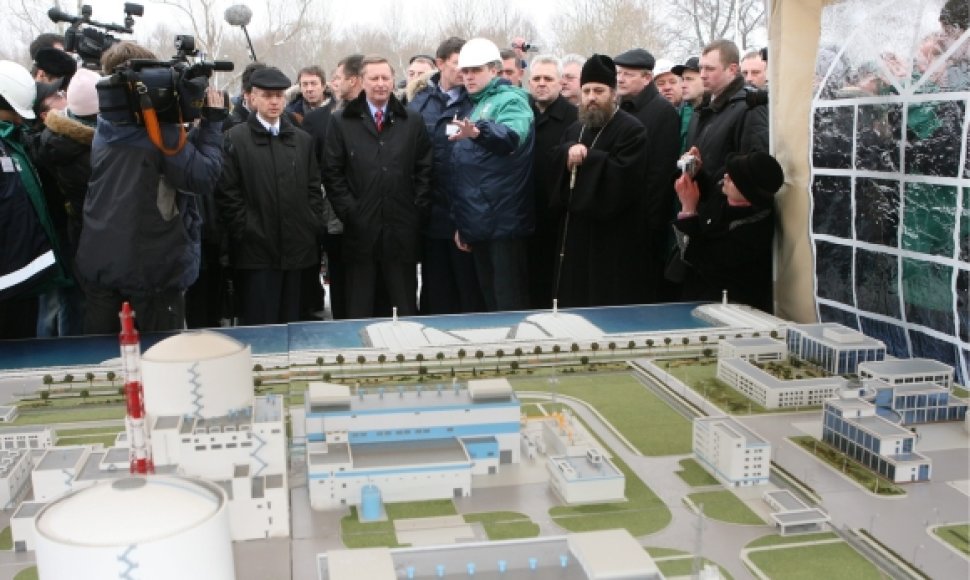“We propose to hold personal consultations so as to clarify the issues that emerge in direct contacts between experts, and not to find out whether Lithuania approves of the Baltic nuclear power plant project, or not. It might be the case that there are some additional obstacles for holding bilateral consultations, which are unknown to us,” Sergei Kiriyenko said in an open letter to Lithuania’s ministers of foreign affairs, energy, and environment published in Lithuania’s press on Friday.
Foreign Ministry’s spokeswoman Daiva Rimašauskaitė told BNS that the ministry had reacted to the information released by Rosatom’s Director General, which, according to her, was ”not very precise.”
Kiriyenko admitted that the existing issues might not be dealt with due to competition reasons. However, he asked Vilnius once more to hold official consultations in Lithuania with Russia’s delegation taking part.
Rosatom Director General pointed out that Lithuania was the only state in the Baltic region that had not yet agreed to hold bilateral consultations.
Lithuania’s Foreign Ministry stated on Friday that Russia had not yet provided answers as to why it had decided to build a nuclear power plant in Kaliningrad just 11 kilometers from the Lithuanian border and had not carried out seismic research. The ministry pointed out that those key questions should be answered before moving to the second stage, which would involve public hearings in Lithuania.
The Ministry of Foreign Affairs also said Russia had not explained why seismic research had not been carried out at the site of the facility. A document provided by Russia is based on a tectonic fault map dating back to 1983. The country says the environmental impact assessment was based on a seismic hazardousness map of 1999, but an earthquake instrumentally-recorded in 2004 was stronger than stipulated in the map.
Lithuania also expects answers on measures that will be taken to ensure cooling of the nuclear facility. There are plans to use water from the River Nemunas for cooling, but the distance between the plant and the planned water source is 10-12 kilometers.
According to the ministry, Lithuania officially asked Russia 14 times over the past three years to provide answers to these and other questions during the first stage of consideration of the environmental impact assessment in Lithuania but has not received answers yet.












